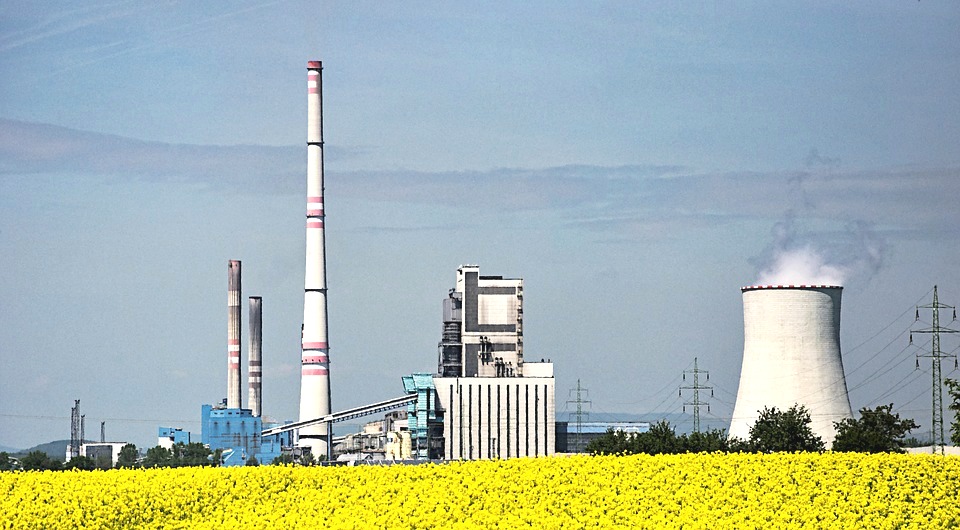
Combating climate change has become one of the top priorities of the most powerful nations as well as individuals. The need for environmental awareness is at its peak, and so is learning about other resources that can cause relatively less impact on the planet.
Using biofuels is one step closer in that direction. They can not only help reduce fossil fuel consumption but, as they are carbon-neutral, they can also help reduce carbon dioxide emissions. In total, biofuels appear to be a very effective means to mitigate the issue of climate change.
Therefore, it is more significant than ever that an effort is put into educating the young generations of the benefits of biofuels. The awareness programs should start right from the school levels. Indeed, the topic might be challenging for many. Whenever a student needs help in gathering information, they can always opt for here I buy an essay service online to learn more and prepare better.
With a combined effort from the educational systems and the community, sustainable living can be an effortless way of lifestyle.
However, to make it practically possible, first, one has to know more about the green alternatives. Here let us look into how biofuel can actually help the world.
Why Biofuels
Biofuels are generated from the chemical reactions breaking down sugar, starch, and molecules in plants. The final product is then refined to produce fuel that can be used as an energy source. There are different types of biofuels.
Biogas is one of the most commonly used types. It is a product of anaerobic fermentation of biomass. This gas contains methane and carbon dioxide as the main components, along with others in small fractions.
Liquid biofuels could be categorized into biodiesel and biogasoline obtained from ethanol, methanol, or biodiesel. Then there are substantial resources such as wood, wood residues, and vegetal materials.
Though biofuel production has seen a growth of 7% in 2018, according to the International Energy Agency, global manufacturing needs to be tripled to meet the targets in 2030. While there are many details yet to be addressed about its consumption, biofuels are still a feasible option towards ensuring sustainability. So how can this energy resource help the world become greener?
It Reduces Greenhouse Gas Emissions
Global warming is reshaping the landscape of the planet. The leading cause of this is the consumption of fossil fuels that releases greenhouse gases into the atmosphere.
With biofuels as a renewable alternative, it offers a solution to reduce these carbon emissions. Biofuels such as cellulosic ethanol have the power to reduce greenhouse gas emissions by 86%.
Biofuels can be used to power factories, vehicles, and even homes, replacing fossil fuels. With the right means to produce, it is indeed possible to use it as a primary energy source to reduce contributing towards heat-trapping gases.
Economic Impact
Another reason to consider biofuels is how it can positively affect the economy of individual countries. Producing biofuel will allow states to reduce their dependence on oil imports. The fuel economy due to the very same reasons is always fluctuating, affecting the economy further depending on foreign relations and other factors.
The US spends approximately 1 billion dollars overseas every day to pay for its fuel consumption. European Union is also pushing the production and use of biofuel to meet the 2020 target of employing renewable energy sources.
Domestic biofuel production will help to stabilize the cost of transport fuels and can protect consumers from the fluctuations of the prices.

Global Rural Development
Biofuels require a large scale production of biomass feedstocks. This will, in turn, help to create opportunities for the development of rural areas all over the world. For instance, this study by the International Food Policy Research Institute discusses how ethanol made from Cassava plant has positively affected the biofuel production, employment, and agricultural growth in Tanzania.
Farmers and forestry workers can diversify into the processing of agro wastes or start energy crop production. More jobs could be offered for construction workers to build and operate on the biorefineries.
The biofuel market will soon expand to include opportunities for research companies, engineers, technology, and provide thousands of jobs to people working in support industries.
Reduce Atmospheric Contamination
According to WHO, 91% of the world population lives in places where air quality exceeds their guideline limits. Burning fossil fuels releases nitrogen oxide, acetaldehyde, sulfur, and other pollutants that lead to smog and harmful air conditions.
These emissions lead to respiratory ailments and cancers, making thousands of people sick every year. `
Compared to conventional fuels, biofuels have a less particulate matter, reducing causes of asthma. While biofuels still produce some pollutants, with careful consideration in its production and usage, it is possible to minimize the contamination of the atmosphere.
Furthermore, biofuel also can be utilized to redirect the waste to be used as raw materials, thus decreasing pollution.
Sustainability
Ultimately, the use of biofuels is encouraged to lead to sustainable practices. As the fossil fuels that we use currently will be extinct one day, eradicating all our primary energy resources, it is high time the world invests in biofuels.
With the escalating energy demand, biofuels can help to enhance energy conservation by reducing global reliance on fossil fuels.
As an energy source, biomass is comparatively evenly distributed and thus could bring a balance in its production and consumption.
However, it is necessary to note that biofuels are not entirely harmless. Certain biofuels are produced from crops that require more energy to cultivate, subsequently increasing energy generation.
More and more scientists are conducting studies on the Life Cycle Assessment of biofuels to maximize the benefits. Researchers explore the different ways to transform biomass into energy in cost-effective and efficient ways.
Final Words
Energy consumption is increasing every second. To meet the high demands, it is imperative to devote time to look into other renewable resources and its bulk production to reduce the dependency on fossil fuels.
At best, biofuel is considered a potential solution that can definitely make the world a better place to live.
You may also like
Alternative Energy Sources You Need To Know About
The True Power of Wind Turbine
